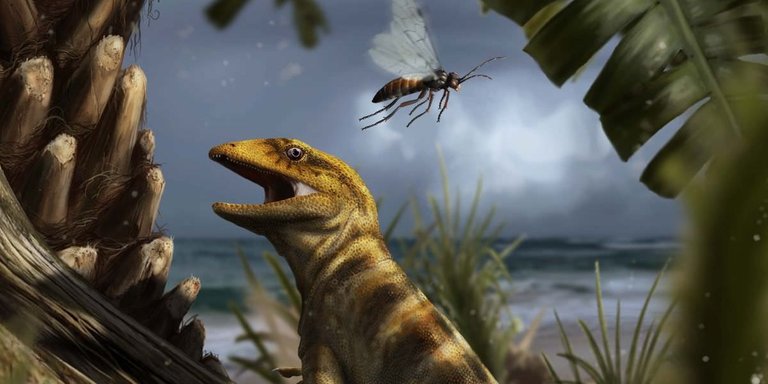
The lizard fossils discovered in Italy, called the Megachirella wachtleri, are 240 million years old. These reptile fossils are 75 million years older than those that have been considered the oldest so far.
A team of scientists, headed by Tiago Simões from Alberta University, Edmonton, Canada, conducted research including fossil and DNA analysis, as well as current and extinct representatives of the squamates. As a result, scientists have been able to reconstruct the evolutionary history of reptiles.
Interestingly, the Megachirella wachtleri fossils were discovered almost 20 years ago in the Italian part of the Alps, which was once underwater. However, it was only now possible to classify them accurately as remnants of the squamatas - the largest recent order of reptiles, comprising all lizards and snakes. The research was difficult because some part of the Megachirella wachtleri is embedded in the rock, which made it very difficult to identify the creature. Computed tomography research has revealed previously unknown details of the palate, skull, limbs and shoulder of an animal.

As it turns out, M. wachtleri was a small, land-based animal with teeth adapted to catching insects. The previous, oldest squamata fossils were dated back to about 168 million years. Establishing that M. wachtleri's fossils are 75 million years older suggests that reptiles are much older than expected - they appeared before the mass extinction at the end of Perm, which took place 252 million years ago, adds herpetologist and biological evolutionary Jeff Streicher from the Museum of Natural History in London. How reptiles survived the great extinction remains a mystery for the moment.
Researchers have also travelled to 17 countries to look again at other known fossils. Thanks to the combination of all the new research results, the scientists reconstructed the evolutionary tree. They noted that Geckos seems to be the oldest of the lizards still alive, and that Iguanas may be a younger reptile species than previously thought.
Please follow @technocracy to get the best of space, technology and science news. And visit our Steem powered website: Technocracy Blog.
Source: sciencemag.org
Warning! This user is on our black list, likely as a known plagiarist, spammer or ID thief. Please be cautious with this post!
If you believe this is an error, please chat with us in the #appeals channel in our discord.